Are All Essential Oils Natural
Essential oils have gained popularity in recent years for their natural healing properties and aromatic benefits.
Not all essential oils are created equal. We will explore the differences between natural and synthetic essential oils, how they are made, and the potential risks and benefits of each.
By the end, you will have a better understanding of why choosing natural essential oils is the way to go for your health and well-being.
Let’s dive in and learn more about these powerful plant extracts.
Key Takeaways:
What Are Essential Oils?
Essential oils are highly concentrated plant extracts obtained from various parts of plants, such as leaves, flowers, stems, and roots. These oils are known for their therapeutic properties, often used in aromatherapy for health and wellness purposes.
One of the fascinating aspects of essential oils is the diverse range of sources they can be extracted from, including lavender, peppermint, eucalyptus, and tea tree. The extraction process involves methods like steam distillation, cold pressing, or solvent extraction, ensuring that the purity and potency of the oils are maintained.
Organic essential oils are particularly prized for their purity, as they are derived from plants grown without synthetic additives or pesticides, making them safe and natural alternatives for various health and beauty applications.
How Are Essential Oils Made?
The process of making essential oils involves distilling or cold-pressing plant material to extract the potent essence of the plant. This extraction method ensures the purity and therapeutic value of the oil.
During distillation, plant material is gently heated in water, and the steam is then cooled to obtain the essential oil. Cold-pressing involves mechanically pressing the oils out of the plant material without the use of heat. Both methods require careful handling and adherence to stringent safety protocols to maintain the quality and effectiveness of the oils.
Safety measures
such as proper ventilation, protective gear, and monitoring of temperatures are crucial during the production process to prevent contamination and ensure that the oils remain pure and potent.
Are All Essential Oils Natural?
While most essential oils are natural plant extracts, some synthetic oils exist that mimic the scents and properties of natural oils but may lack the full therapeutic value of their natural counterparts.
Distinction between natural and synthetic essential oils:
- Natural essential oils are derived directly from plant sources through methods like distillation or cold pressing, retaining the purity and therapeutic benefits of the original plant.
- On the other hand, synthetic oils are artificially created in a laboratory, often using chemicals to replicate the aroma of natural oils. These synthetic versions may lack the complexity and synergy of natural oils, leading to differences in therapeutic effects.
Importance of natural sources for therapeutic benefits:
- The authenticity of essential oils is crucial for their efficacy in aromatherapy and other uses. Natural oils contain a diverse range of compounds that contribute to their therapeutic value, such as terpenes, phenols, and aldehydes.
- These compounds interact synergistically to produce specific therapeutic effects, which may be compromised in synthetic counterparts.
What Are Synthetic Essential Oils?
Synthetic essential oils are artificially created fragrances that replicate the aroma of natural oils using chemical compounds. These oils may have a different composition compared to natural oils and can sometimes lead to adverse reactions.
During the production of synthetic essential oils, a variety of chemicals are utilized to mimic the natural scent profiles. The chemical composition of these synthetic oils can vary significantly from their natural counterparts, as they are created in controlled laboratory settings instead of being extracted directly from plants.
Due to the presence of these artificial chemicals, individuals may experience skin irritations, allergic reactions, or respiratory issues when using synthetic oils. It’s crucial to be aware of the potential risks associated with chemicals in these products and consider consulting a healthcare professional before incorporating them into daily routines.
How Can You Tell If An Essential Oil Is Natural?
One way to determine if an essential oil is natural is to look for certifications like USDA Organic, which indicate that the oil has met specific purity and quality standards set by the US Department of Agriculture.
USDA Organic certification is crucial for consumers looking to ensure the authenticity and purity of essential oils they purchase. This certification guarantees that the product was produced without synthetic pesticides, fertilizers, or other harmful chemicals, adhering to strict guidelines for organic farming practices.
When shopping for essential oils, checking for the USDA Organic label is a reliable way to assess the quality and purity of the product. Look for the official logo on the packaging, which signifies that the oil has undergone rigorous testing and meets the stringent criteria for organic certification.
By choosing certified organic oils, consumers can trust that they are investing in a product that is free from contaminants and provides the therapeutic benefits associated with pure, natural essential oils.”
What Are The Benefits Of Natural Essential Oils?
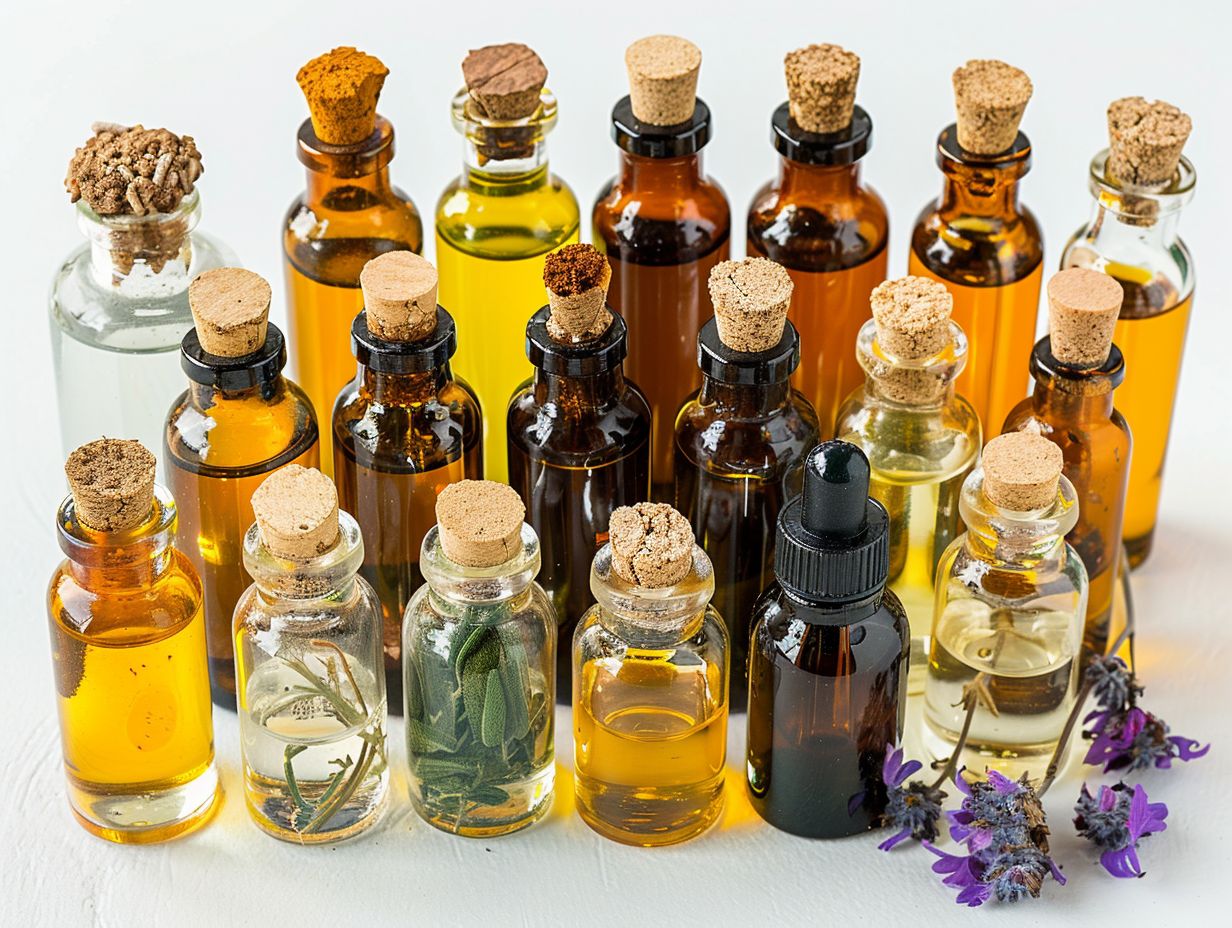
Natural essential oils offer a myriad of benefits, including therapeutic properties that promote holistic wellness and support various aspects of physical and emotional health.
These oils are derived from plants and contain concentrated aromatic compounds that have been used for centuries in traditional medicine to alleviate symptoms of various ailments such as stress, anxiety, headaches, and insomnia. Essential oils can be used in different ways, including aromatherapy, topical application, and even in some cases, internal consumption under proper guidance. Each oil possesses unique properties that can provide relief and enhance well-being, making them a versatile and natural alternative to synthetic products.
Pure and Potent
Natural essential oils are valued for their purity and potency, derived directly from the botanical source to ensure maximum therapeutic impact.
The purity of natural essential oils is key to their effectiveness, as these oils are extracted without any synthetic additives or dilution. By sourcing directly from the botanical plants, the oils retain their potency and all the therapeutic properties present in nature. This direct extraction process ensures that the oils are rich in their natural components, delivering the purest form of plant essence for aromatherapy and other holistic practices.
No Harmful Chemicals
One of the key advantages of natural essential oils is that they do not contain harmful synthetic chemicals that can often cause skin irritation or allergic reactions.
By opting for natural essential oils, individuals can avoid exposing their skin to potentially irritating substances commonly found in synthetic fragrances and skincare products. Natural essential oils are extracted from plants through distillation or cold pressing, preserving their purity and therapeutic properties. These oils are widely recognized for their holistic benefits, ranging from promoting relaxation to supporting overall well-being. Their gentle nature makes them suitable for those with sensitive skin, minimizing the risk of adverse reactions or dermatological issues.
Better for the Environment
Choosing natural essential oils is not only beneficial for personal health but also for the environment, as these oils are often sourced sustainably from plants and do not disrupt the endocrine system.
In terms of the sourcing of natural essential oils, companies often prioritize sustainability by cultivating plants in eco-friendly ways that minimize harm to the ecosystem. This sustainable approach involves practices such as organic farming, wildcrafting, and ethical harvesting, ensuring that the plants are grown and harvested in a manner that supports biodiversity and conservation efforts.
The production methods of natural essential oils are carefully designed to preserve the environment. Through processes like steam distillation or cold pressing, these oils are extracted without the use of harsh chemicals or solvents, making them environmentally friendly choices. By opting for natural essential oils, individuals can support practices that are gentle on the planet and promote a healthier ecosystem for future generations.
What Are The Risks Of Synthetic Essential Oils?
Synthetic essential oils pose certain risks due to their chemical composition, as they may lead to adverse reactions such as skin sensitivities or allergies, compromising the overall quality of the oil.
When using synthetic essential oils, it is crucial to be aware of the potential adverse effects they can have on the skin and overall well-being. These oils often contain synthetic chemicals that mimic the aroma of natural oils but lack the therapeutic benefits. The chemical components in synthetic oils can trigger skin sensitivities or allergic reactions, leading to discomfort and skin irritation.
Quality is another significant concern when it comes to synthetic essential oils. The manufacturing processes involved in creating synthetic oils may result in lower purity levels and the presence of impurities that can further exacerbate the risk of adverse reactions.
May Contain Harmful Chemicals
Synthetic essential oils may contain harmful chemicals that result from contamination during the manufacturing process, raising concerns about adherence to quality and safety regulations.
Contamination can occur due to improper handling of raw materials or inadequate quality control measures, leading to the presence of toxins and impurities in the final product. Regulatory standards play a crucial role in monitoring the production of synthetic oils, setting limits on acceptable levels of contaminants to safeguard consumer health.
Can Cause Allergic Reactions
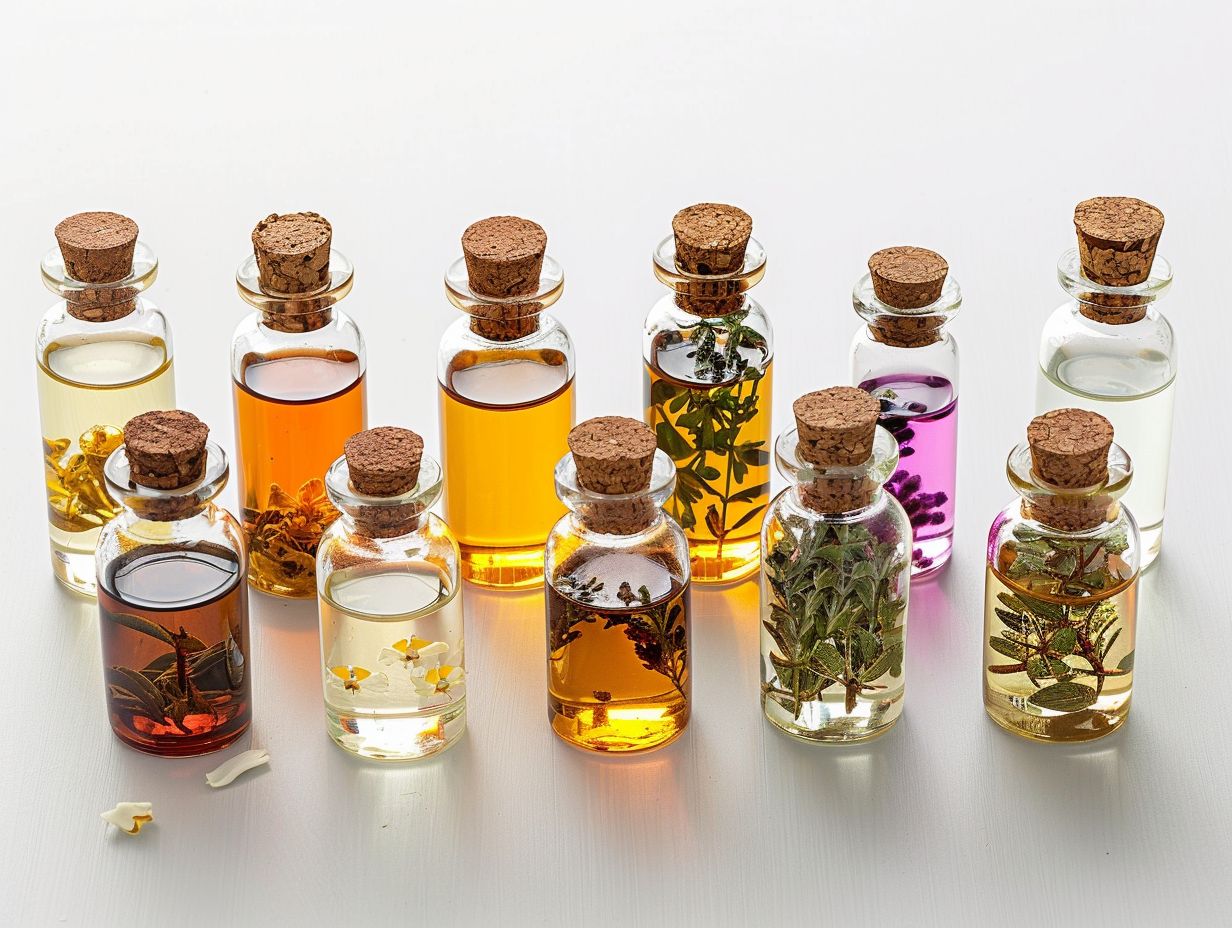
These allergic reactions can range from mild skin irritation, such as redness or itching, to more severe responses like hives or difficulty breathing. Individuals with pre-existing skin conditions may be at a higher risk for developing reactions to synthetic essential oils.
It is crucial to pay attention to symptoms like swelling, rash, or watery eyes, as they can indicate an allergic reaction. If these symptoms occur after using synthetic essential oils, seeking medical advice is essential to determine the appropriate course of action.
Not as Effective as Natural Oils
Compared to natural essential oils, synthetic counterparts are often less effective in delivering the full therapeutic value and beneficial properties that natural oils possess.
One of the key reasons behind the reduced efficacy of synthetic essential oils lies in the artificial production processes that fail to replicate the intricate chemical compositions found in natural oils. Natural essential oils are extracted from plants through methods like steam distillation or cold pressing, preserving their integrity and potency. In contrast, synthetic oils are created in a lab using artificial fragrances and chemicals, lacking the complex synergies that contribute to their therapeutic benefits.
How To Choose Natural Essential Oils?
Selecting natural essential oils involves looking for certifications like USDA Organic, which guarantee the oil’s quality and purity. It is also essential to source oils from reputable producers known for their commitment to organic practices.
Certified organic essential oils are not only free from harmful chemicals and pesticides, but they are also sustainably sourced, ensuring minimal impact on the environment.
When choosing oils, consider the transparency of the producers‘ practices, such as their harvesting methods and extraction processes. Trustworthy producers often provide detailed information about their sourcing and production methods, allowing consumers to make informed decisions.
By prioritizing oils from certified organic sources and ethical producers, you can enjoy the benefits of pure, high-quality essential oils while supporting sustainable and eco-friendly practices.
Look for Certified Organic Oils
When selecting natural essential oils, prioritize those with organic certifications from reputable organizations like the USDA, ensuring the oils’ purity and adherence to stringent quality standards.
By choosing certified organic essential oils, consumers can be confident that they are purchasing products that have met strict guidelines for cultivation, processing, and labeling. Organic certifications, such as those provided by the USDA, require producers to follow specific regulations regarding the sourcing of raw materials, extraction methods, and packaging.
These certifications also guarantee that the oils are free from synthetic pesticides, herbicides, and additives, making them a safer choice for personal use. When shopping for essential oils, look for labels displaying the USDA Organic seal or other recognized certifications to ensure you are getting a product that prioritizes purity and quality.
Check the Ingredients List
Examining the ingredients list of natural essential oils is crucial to verify the purity of the oil and assess its potential therapeutic impact on health and well-being.
When you carefully scrutinize the ingredients, you ensure that the oil is free from synthetic additives or harmful chemicals that can dilute its efficacy. Ingredient purity is the cornerstone of the oil’s quality, determining its aroma, consistency, and overall effectiveness. Premium quality ingredients sourced from reputable suppliers contribute to the therapeutic benefits of the oil, enhancing its ability to alleviate stress, boost mood, and promote relaxation. A meticulous evaluation of the ingredients allows you to make informed choices, harnessing the full potential of natural essential oils for your well-being.
Research the Brand’s Reputation
Before purchasing natural essential oils, it’s advisable to research the brand’s reputation, ensuring that the products meet quality standards and have positive feedback from consumers.
Brand reputation plays a vital role in determining the authenticity and purity of natural essential oils. A reputable brand typically reflects a commitment to sourcing high-quality ingredients, adhering to ethical practices, and prioritizing customer satisfaction. By looking into consumer reviews and ratings, individuals can gain valuable insights into the effectiveness and trustworthiness of a particular brand. Consumer feedback serves as a valuable indicator of the product’s performance, scent accuracy, and overall user experience. Therefore, taking the time to evaluate a brand’s reputation can lead to a more satisfying and informed purchase decision.
Conclusion: Natural Essential Oils Are the Way to Go

These oils are sourced from plants and carry no synthetic chemicals, making them gentle on the skin and safe for sensitive individuals. The organic quality of natural essential oils also guarantees that they are free from pesticides and other harmful substances, promoting a healthier lifestyle. The therapeutic benefits of these oils, such as stress relief, improved sleep, and mood enhancement, make them a valuable addition to daily wellness routines. Incorporating natural essential oils into your self-care practices can elevate your physical and emotional well-being, providing a natural and holistic approach to maintaining health and vitality.
Frequently Asked Questions
Are all essential oils natural?
Yes, essential oils are derived from plants and are considered natural products.
Can essential oils be synthetic?
While most essential oils are natural, there are some that are made synthetically in a lab. These are not considered true essential oils and may not have the same therapeutic benefits as natural ones.
How can I tell if an essential oil is natural?
Look for 100% pure or therapeutic grade essential oils. These should only contain natural plant extracts and should not have any added chemicals or fragrances.
Are all essential oils safe to use?
While essential oils are generally safe, it is important to do your research and use them properly. Some oils may cause skin irritation or interact with certain medications, so it is best to consult with a healthcare professional before use.
Are essential oils regulated by the FDA?
No, the FDA does not regulate essential oils. However, some essential oil companies follow self-regulated standards to ensure the purity and quality of their products.
Can essential oils be harmful?
Yes, some essential oils can be harmful if used improperly. Always dilute oils before use and avoid using them internally without guidance from a healthcare professional.

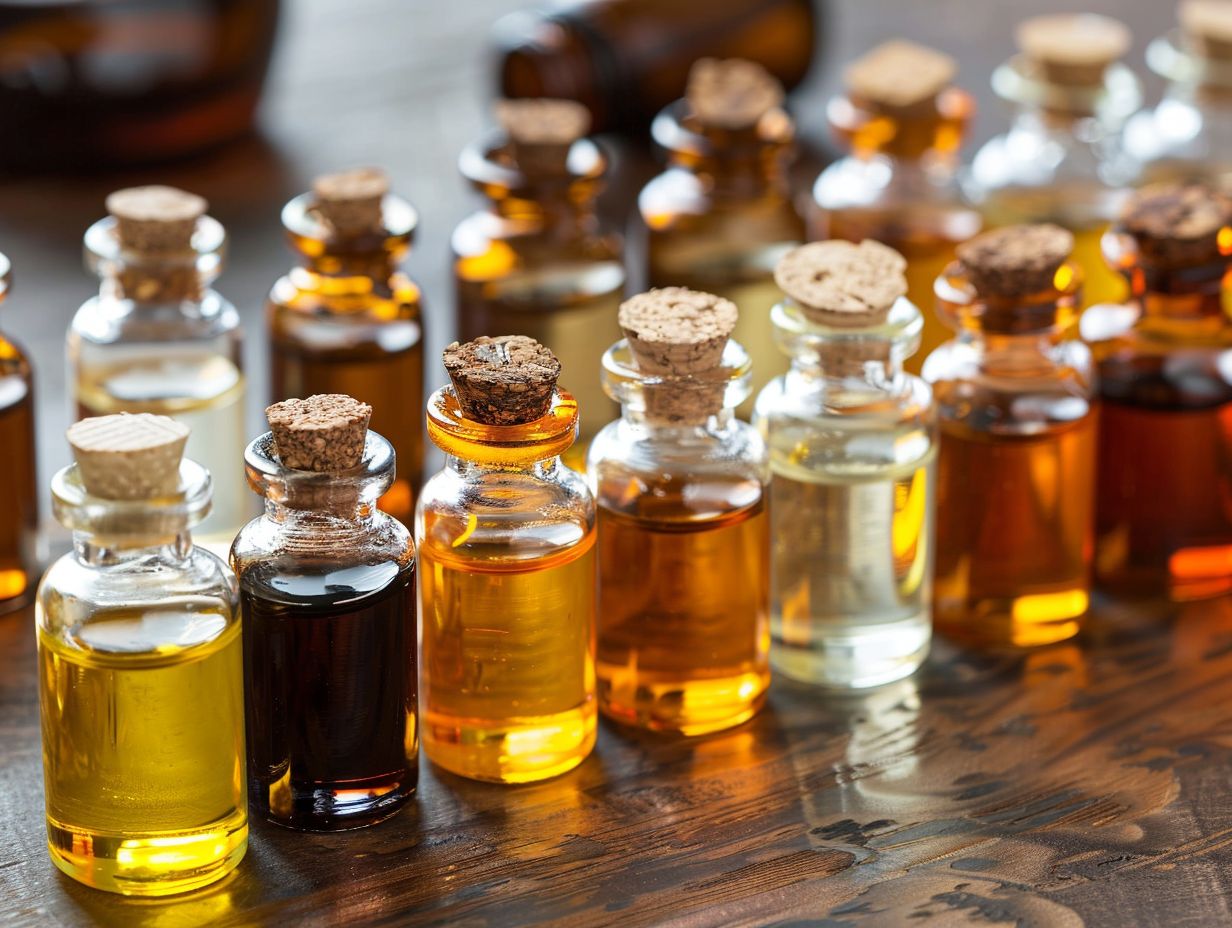
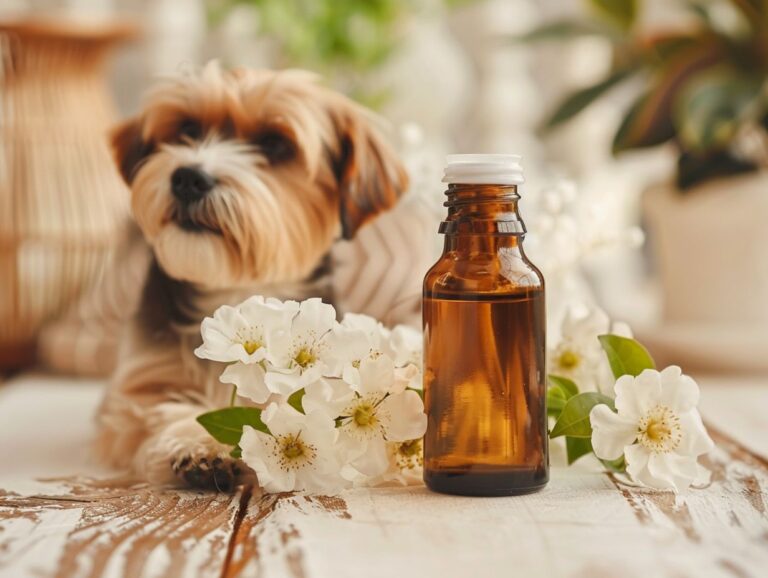



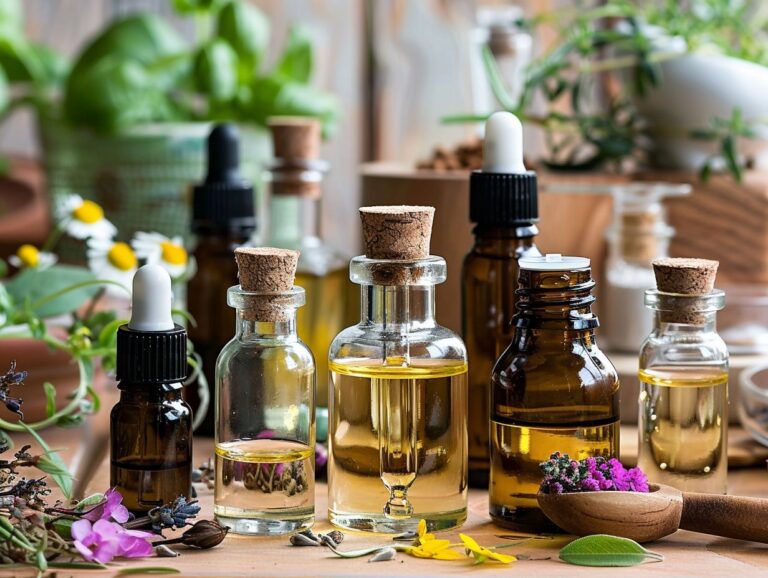

2 Comments